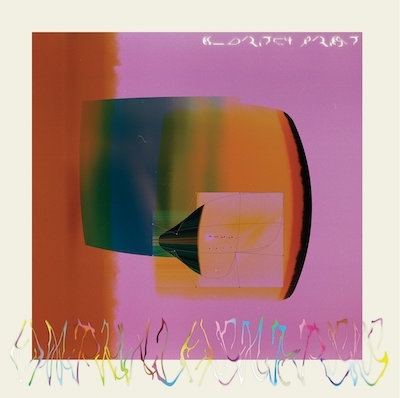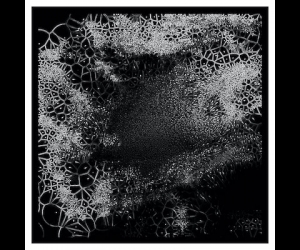
The Greek word omphaloskepsis denotes the meditative practice of gazing at one’s navel. The word is well-chosen by composer and performer Eldritch Priest for the title of this creation.
A deceptively simple, monodic guitar line opens the first movement of the work. It’s a surprisingly wild and allusive ride, haunted by a plethora of vaguely remembered, real or imagined, musical and extra-musical artifacts. At the same time, the pace, rhythm, and contour suggest the steadily unspooling monologue of a talkative chum during a casual walk: you know there is a point to the words, but they just keep proliferating to the point where they offer more of a presence than a story.
Half a minute in, the guitar line leans into a magical cloud of sonic fuzz, essentially announcing the gist of the work: the reassuring, consistent guitar line regularly intercepted by compellingly unpredictable electronic interventions. At the risk of pushing my metaphor too far, you happily go on the walk, tune in and out of your companion’s speech, and along the way you encounter a lot of strange creatures, plants, smells, and puddles that continually contextualize and disrupt the monologue.
Every listen to Omphaloskepsis is richly rewarding, and reveals anew that each intersection of guitar and electronics is independently teeming with wonderful details. Some are blunt, disruptive, and complex; others dissipate into fading sonic rivulets; still others are like clouds of tiny, sparkling insects. These fascinating details really come to the fore if you try out the piece on different qualities of equipment: from MP3s on the cheapest earbuds to vinyl on the most expensive turntable, something previously unheard is revealed. As one who has never believed there is one ideal way to hear any music, I find Omphaloskepsis to be an engaging partner for this kind of discovery.
Halocline Trance is here.
Eldritch Priest is here.


